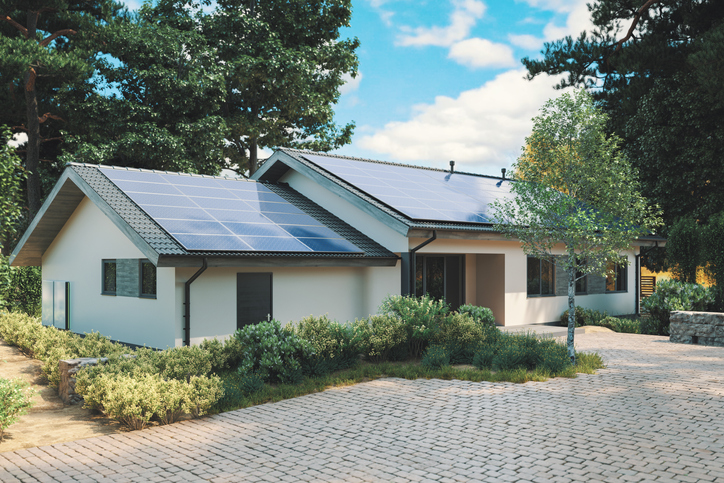Alternative Solutions to the Rising Cost of Electricity
Americans are on track to spend 23 percent more on transportation and energy this year than they did in 2020 due to inflation and supply chain issues. Clean energy can help stabilize energy costs to help Americans save money, and solar-powered homes can save families thousands of dollars over the life of the solar array.
The average Arkansas home pays $1968 per year for electricity. Households that install solar panels will see an immediate change to their monthly utility bill. It is a long-term investment, however. Depending on the size of the solar array and the electricity needs of the customer, it can take many years before households will see a complete return on their investment.
How Much Can Solar Save?
Save on Your Bill
There are currently 27 solar companies operating in Arkansas, including six manufacturers and 11 developers and installers. There are also solar calculators online that can help you find what you can save and when you’ll see a return on your investment. Solar Panels Network estimates that even the low end of yearly savings will help homeowners save $600 per year on electricity.
Net Metering
Arkansas is also a net-metering state, which means that if the solar panels on your property are generating more electricity than your home can use, then you can sell the excess back to the power company for a credit on your next utility bill, which further increases your savings.
How Much Does Solar Cost?
The price to install solar on your property is determined by several factors, but the main one is how big of a system you want to install.
Solar Tax Incentives
You can offset some costs of installation by taking advantage of any tax credits and rebates that are available. While Arkansas doesn’t offer any incentives at the state level, there is a federal Investment Tax Credit for up to 26 percent of the cost of solar installation projects begun in 2022. Next year, the credit drops to 22 percent. Additionally, some solar manufacturers offer rebates as an incentive to purchase from them.
Other Financing Options
You can also look at financing options, such as opening a Home Equity Line of Credit, getting a solar loan, or even financing directly with the installation company.
Solar Lease Agreements
For homes wanting to take advantage of solar energy but are unable to afford the upfront costs, there are a few more options available. Some companies offer Solar Service Agreements (SSA), in which the company owns, operates, and maintains the solar panels on your property and sells the energy generated to you for a predetermined period. The SSA payments are offset by lower utility costs to make the service budget neutral or even budget positive.
SEPO Agreements
Power companies also may have solar programs in place. Entergy Arkansas is the largest power company in the state, servicing 63 counties. Entergy offers a Solar Energy Purchase Option (SEPO), where some power provided to your home comes from one of their solar power plants. The SEPO agreement is available to customers on a first-come, first-served basis, but it provides a credit on your utility bill to lower your monthly charge.
Contact Your Farm Bureau Insurance Agent
Solar panels may affect the price of your homeowners insurance. How could it impact yours? Talk to a Farm Bureau Insurance agent about your homeowners insurance policy. To get started, contact an agent near you using our Agent Finder.

